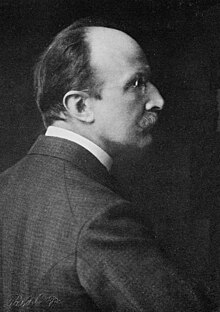The German scientist’s full name is Max Karl Ernst Ludwig Planck. He was a prominent member of the German scientific community for a long time. It is attributed to him that the quantum hypothesis was discovered. The scientist researched thermal radiation, quantum theory, and thermodynamics. By his own works, the physicist is considered the father of quantum physics. During the Nazi era in Germany, he was one of the few who ventured to speak out in favor of the Jews. He pursued research for as long as his health permitted and stayed devoted to it till the end of his life.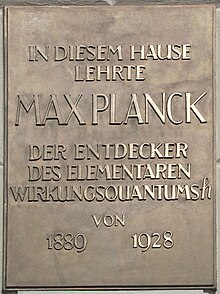
Early Life and Adolescence
On April 23, 1858, Max Planck was born in Kiel. His ancestors came from a long-standing noble lineage. Both his great-grandfather Gottlieb Jakob Planck and grandfather Heinrich Ludwig Planck were theologians at the University of Göttingen.
Wilhelm Planck, Max’s father, was a law professor and practicing attorney at the University of Kiel. He had two marriages. Two kids came from the first marriage. He wed Emma Patzig, Max’s mother, a second time, and the two had five children together. She was raised in Greifswald by her pastoral family and later met Wilhelm Planck there.
Up until the age of ten, Max resided in Kiel. The family relocated to the Bavarian capital in 1867 after his father was offered a chair at the University of Munich. At the Maximilian Gymnasium, where he was placed among the top pupils in his class, the kid was sent.
Hermann Müller, Planck’s math teacher, had a big impact on the young man. He initially taught him about the concept of the law of conservation of energy. Max showed excellent mathematics skills. His interest in science, particularly the study of natural laws, was piqued by his studies at the gymnasium.
Planck had a youthful affinity for music as well. He played many instruments, practiced piano a lot, and was a member of a boys’ choir. He attempted to compose and studied music theory at one point, but he eventually decided he would not be a composer. Planck’s passions were established by the time he graduated from high school.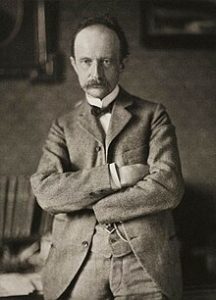
He had aspirations of becoming a pianist and devoting his life to music in his adolescence. He expressed a strong interest in mathematics and physics and had aspirations of pursuing philology. Max ultimately decided to major in exact sciences and enrolled at the University of Munich. He continued to pursue music while a student. He was in the student chapel, playing the organ. He conducted an orchestra and led a small choir.
Max’s father suggests that in order to assist him fully immerse himself in the study of theoretical physics, he get in touch with Professor Philipp von Jolly. The professor convinced the student to give up on this notion since he believed that science was almost finished. He says that the majority of the study has already been done, so there’s no need to anticipate any fresh findings.
Planck doesn’t give up, though. He is not in need of discoveries; rather, he wants to comprehend the fundamentals of physical theory and, if feasible, go deeper into them. The student starts going to Wilhelm von Betz’s experimental physics seminars. He studies the permeability of heated platinum for hydrogen together with Professor Philipp von Jolly. Professors Gustav Bauer and Ludwig Seidel, who are mathematicians, are the ones who teach Max.
Planck visits renowned physicist Hermann Helmholtz before departing to attend the University of Berlin. Karl Weierstrass, a mathematician, gives lectures that he attends. He analyzes the writings of Gustav Kirchhoff and Helmholtz, two academics he looks up to for their proficiency in explaining difficult subjects. Upon perusing Rudolf Clausius’s writings on the theory of heat, he decides to shift his research focus to thermodynamics.
The Scientific
After defending his dissertation on the second law of thermodynamics, Planck was awarded a degree in 1879. The physicist’s work establishes that heat cannot be transferred from a cold body to a warmer one during a self-sustaining process. He published another study on thermodynamics the next year and was hired as a junior assistant in the University of Munich’s physics department.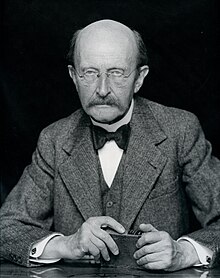
Planck was appointed associate professor at the University of Kiel in 1885. He had already started to reap the benefits of his research in the shape of worldwide recognition. The scientist was invited to the University of Berlin three years later, when he was also appointed associate professor. He was appointed director of the Institute for Theoretical Physics at the same time. Max Planck was promoted to full professor in 1892.
The scientist started researching body heat radiation four years later. Planck’s theory states that electromagnetic radiation cannot exist in a continuous state. It exists as discrete quanta, the size of which varies according on the frequency at which it is released. A formula for the energy distribution in the spectrum of an absolute black body is derived by Max Planck.
The scientist presented his findings to the Berlin Scientific Council in December 1900, sparking the development of quantum theory. The Boltzmann constant’s value was determined using Planck’s formula as early as the next year. With great accuracy, Planck determined the amount of the electron charge and was able to determine the Avogadro constant, or the number of atoms in one mole.
Later on, quantum theory was strengthened by Albert Einstein.
Max Planck, a scientist, won the 1918 Nobel Prize in 1919 in recognition of his contributions to physics and the discovery of energy quanta.
Despite his resignation in 1928, he remained involved in the Kaiser Wilhelm Society for Basic Science. The Nobel laureate took over as its president two years later.
Philosophy and Religion
Max Plan was raised in a Lutheran environment, and he always valued religious principles above all else. Every time we had dinner, he said a prayer. It is known that he held the position of presbyter from 1920 until the end of his life.
The physicist opposed the merging of religion and science. He disapproved of spiritualism, theosophy, astrology, and other vogue practices. He also thought that the importance of science and religion was equivalent.
The popularity of his 1937 speech “Religion and Natural Science” was evident in its numerous later publications. The country was ruled by fascists, and the writing began to mirror events there.
Planck feels compelled to continuously refute accusations that he is changing his faith and never once uses the name of Christ. The scientist stressed that while he is still religious, he does not believe in a personal god.
Individual life
In 1885, Max Planck wed Maria Merck, a childhood acquaintance, for the first time. Twin daughters and two sons made up their family of four. He was a devoted husband and father who cherished his family. In 1909, his spouse passed away. After a span of two years, the scientist made another attempt to plan his personal life and made a proposal to his niece Marga von Hesslin. Max Planck received another son from the mother.
The biographies of the scientist start to get shady. 1916 saw the death of his oldest son in the First World War, while 1917 and 1918 saw the deaths of his daughters during childbirth. Despite his well-known father’s request, his second son from his first marriage was put to death in early 1945 for his involvement in a plot against Hitler.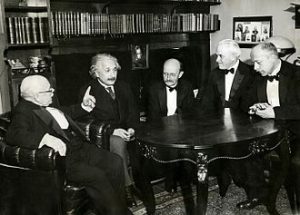
The thoughts of Max Planck were known to the Nazis. The physicist implored Hitler not to persecute Jewish scientists during a visit when he was the head of the Kaiser Wilhelm Society for Basic Sciences. Hitler told him straight to his face, in all seriousness, what he thought of the Jewish people. Planck attempted to keep his thoughts in check and kept quiet after that.
The scientist’s home entirely burned down during an Allied army air raid in the winter of 1944. Books, diaries, and manuscripts were all burned in the fire. He relocated to Rogetz, close to Magdeburg, to live with his buddy Karl Stil.
In 1945, the lecturer nearly perishes from bombs during a lecture in Kassel. The Planck couple’s makeshift residence was also devastated by airstrikes in April. After entering the jungle with their spouse, the scientist took up residence with a milkman. Planck’s condition declined; his back arthritis got worse and he had trouble walking.
American soldiers are dispatched to retrieve the Nobel laureate and transport him to Göttingen for safety at the request of Professor Robert Pohl. After recovering from his five weeks in a hospital bed, he resumes his job as a lecturer.
Demise
The man traveled to England in July 1946 to commemorate Isaac Newton’s 300th birthday. Fascinating fact: the scientist was the only person from Germany present at the function. The Kaiser Wilhelm Society was renamed the Max Planck Society shortly before the physicist passed away, honoring his contributions to science once more.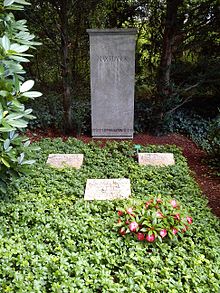
He kept on giving talks. The scientist contracted bilateral pneumonia while in Bonn, but he recovered. He gave his final speech to pupils in March 1947. Max Planck passed away in October of the same year after his health took a severe turn for the worse. A stroke was the reason for the demise. He was only six months away from becoming ninety. The Nobel laureate’s tomb is situated in Göttingen’s cemetery.
Manuscripts, books, and photos are among the priceless legacy that the scientist left behind, serving science selflessly even now.
